Have you ever started a book series and loved it so much you had to pause midway through because it was too agonizingly good? No? Well that’s what happened when I read sci-fi author Etta Pierce‘s first books in the Intersolar Union universe and series.
Set in the nearish future where aliens are very, very real, the Intersolar Union Series follows a diverse group of human and alien characters as they fall in love and fight to save their corner of the universe.
The main series starts with Olivia, a profiler abducted from Earth by an alien Commander (Thel), who is working on busting a massive human trafficking ring. There’s only one problem, his intel is awful and he’s not prepared for the acting needed to convincingly go undercover. Cue Olivia and Thel working together to save the humans, and of course falling in love along the way.
Abductions and human trafficking are common tropes in alien romance, but many of the books never really go beyond the initial abduction. Pierce however takes a hard long look at the aftermath of the trauma that the different characters experience and realistically depicts how it would be to live on a refugee colony separated from the rest of the universe.
The second series, Over The Moon, is focused on the experiences of the refugees on Renata and making new lives for themselves, set up as lighter standalones but with a touch of emotional turmoil.
I devoured the rest of the series once I finally sat down to start the second book. With book six of the main series, Alliance, releasing July 4th, I was really excited when Pierce agreed to do an interview! Below we discuss the process of building such a detailed universe and her plans for the future of the universe, and other books.
FM: Hi Etta! Thank you so much for speaking with me today. Can you tell us a bit more about yourself? What made you become interested in writing sci-fi romance?
EP: Hi! It’s such a long and winding road. The short version is that I craved a creative outlet in which I was the creative director in all things. My day job as a concept artist and filmmaker is highly collaborative, so no decision is purely that of one person. Scifi romance gave me an offer I just couldn’t refuse: total creative control.


FM: What made you decide to write the Intersolar Union books?
EP: If I’m honest, I was frustrated with my favorite genre. Unlike fantasy and monster romance, which both have strong archetypes set in mythology (werewolves, vampires, etc), scifi is by definition meant to be the unknown, and it felt very much like a majority of the genre is regurgitated premises or tries to fit popular monster trends within its other-worldly frame. As I read more, I found fewer and fewer examples of stories that pushed the boundaries, so I felt like there was space for me to do it myself. In particular, I wanted to challenge the overwhelming majority of stories that leaned on Noble Savage tropes.
FM: One of the most common tropes in alien romance is the (usually) FMC being kidnapped, either by the alien she’ll fall for, or as part of a larger plot around kidnapping and trafficking human women. This trope often leads to depicting the individual kidnapper as the noble savage, because he’s actually totally a good guy. Or there’s a lot of trauma but it’s not really addressed beyond the kidnapping.
The start to the ISU is unique because Thel kidnaps Olivia to…save 1000+ kidnapped humans!
How did you approach writing both series and addressing the actual reality of what it would be like for these characters who have been kidnapped to have their own agency and work towards healing?
EP: Building characters that have agency and growth is natural for me. I don’t think I could consciously write any other way. (Though that doesn’t mean I’m not susceptible to mistakes, of course.) To break it down, though, I approach every character with empathy. You have to as a creator, if you want for them to feel genuine, regardless if you agree with their actions, politics, beliefs, etc.
I follow their honest reactions as much as possible, and research around the circumstance they’re experiencing. I also always write a prologue. Every character has a prologue–human or alien–regardless of if I publish it. Without knowing what they’ve lost or left behind, I have no way of understanding their frame of mind in the story I want to tell.
FM: Are you a plotter or a pantser? ISU is set to be 9 books, but do you already know how many you’re planning for Over the Moon?
EP: I am 10000000% a plotter! My outlines for each book end up around 30 pages on average. I’ve kept the Over the Moon series open for growth, but currently have seven books solidly planned.
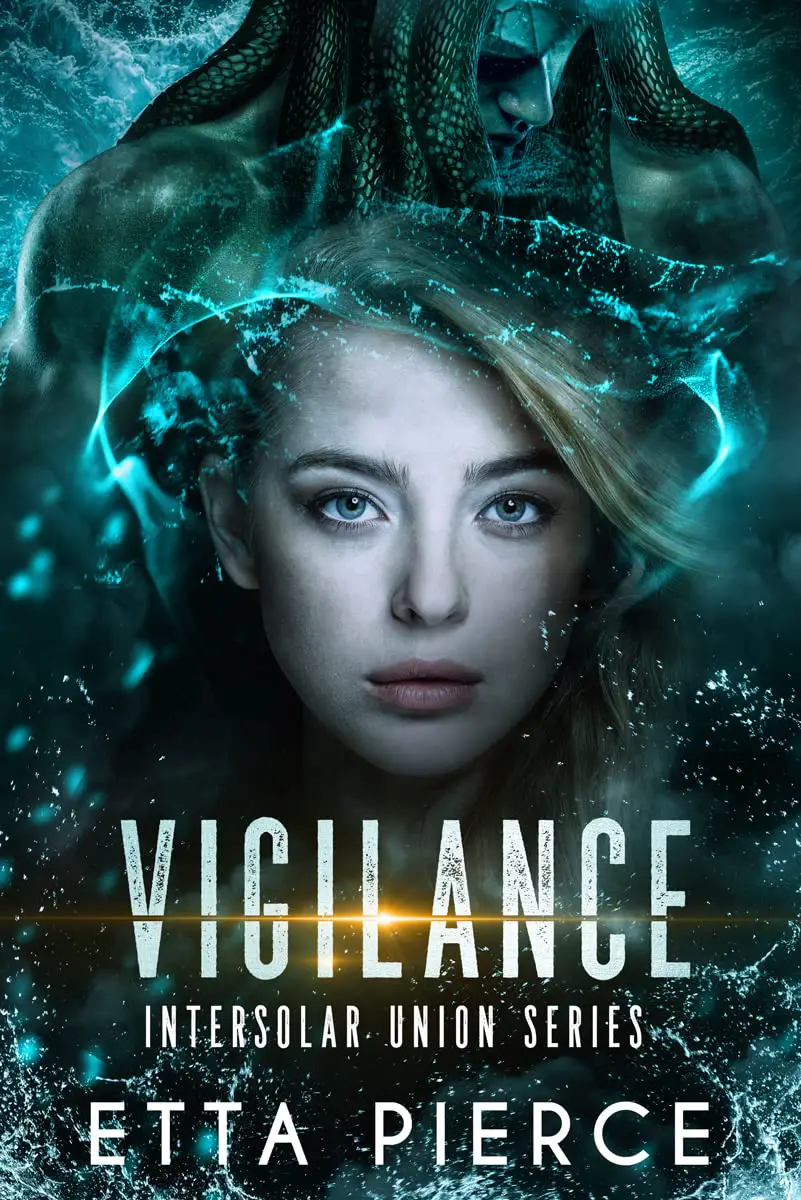


(Books 3 through 5 continues introducing more shilpakaar and venandi characters. Piece also introduces a major long-arc mystery and conspiracy!)
FM: How do you approach world-building? Did you create or design the aliens first and then consider what their bodies and evolution would produce in terms of dynamics? Or did you start with issues in our society and consider them in light of the other beings?
EP: I use the same principles of world-building that I teach, which is that I build a scaffolding that describes the wider laws and logics (such the union’s overall class, power, and trade dynamics), then ask the same questions species to species, planet to planet. Then I go down a rabbit hole of biology and how that might affect the culture of my character(s). I always leave room for each narrative to guide me. It’s really important not to make so many decisions out of the context of the storytelling that you box yourself into an impossible situation.
As for specific issues within society, yes, this is absolutely an element that drives the direction I take my characters. It’s not always because I want to make the story political, but that real life is messy and imperfect. That element is necessary for realism. If the issue reveals itself to me in a manuscript, I will always lean into it. For example, Alliance became a story about undocumented refugees, but when I outlined it, this wasn’t a factor at all. Research and empathy will always lead you to stronger storytelling.
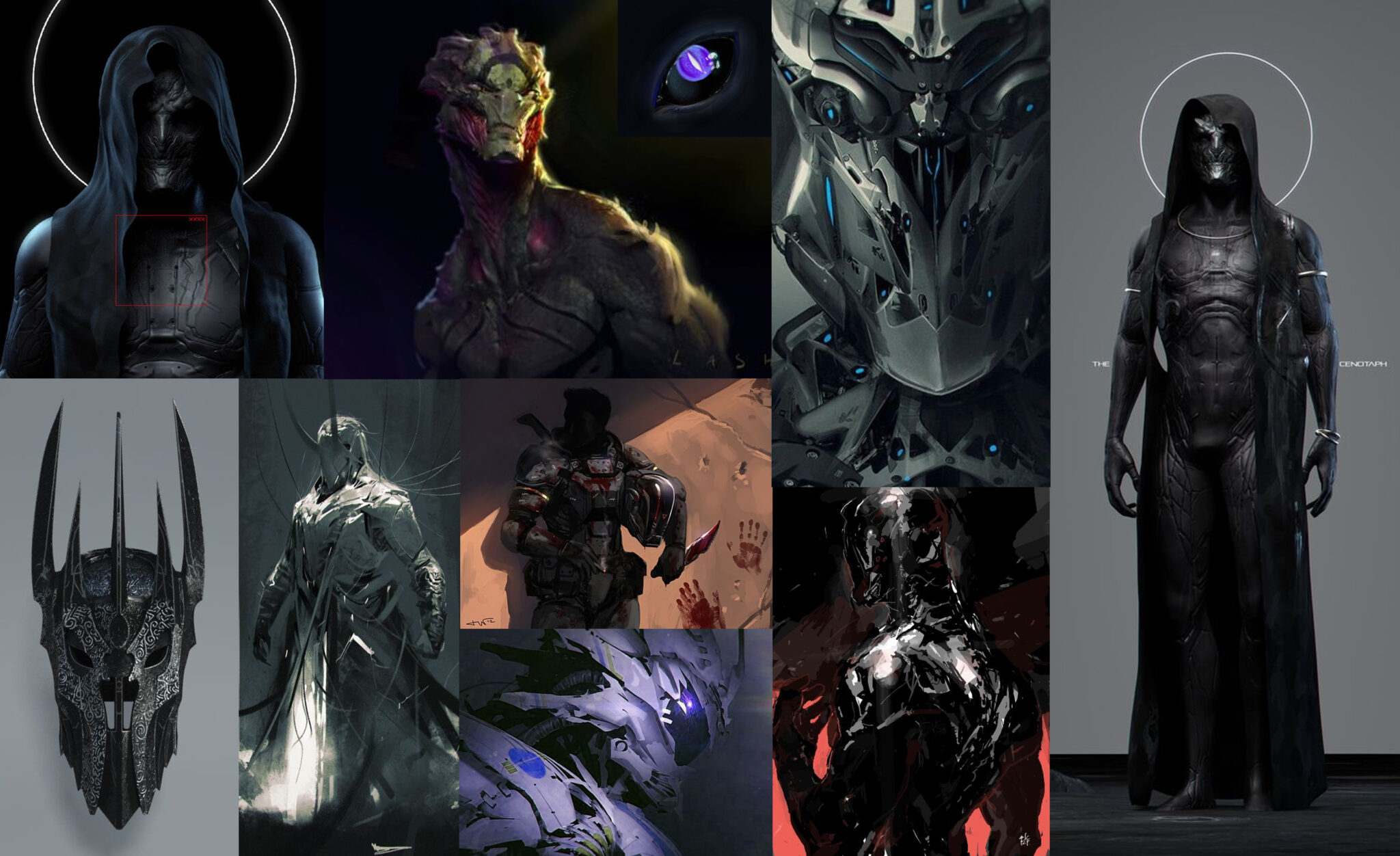
FM: How many distinct alien species are there? In the books we’ve seen or heard of at least ten or more! Will all of them have representation in a lead character?
EP: Oh man, asking the good questions! The ISU has roughly 25 species at the moment. I don’t include world-building in the actual books unless it comes up naturally in the storytelling, so many of them have never been revealed even though many are listed on my website. They will not all have leading roles, because many of them are incapable of it. But expect at least three more species that you’ve never heard of to make a debut after the ISU flagship concludes.
FM: A lot of times in alien romance, the (in)ability to communicate is hand-waved. Sometimes the fated mating allows the FMC to magically understand everyone, for example. You went with translators that didn’t have all the languages loaded. How did you decide on this approach and where do you see the translators and similar technologies going as the series progresses?
EP: This is going to get nerdy real fast, so buckle in. TLDR: It just seemed logical.
An intergalactic community with diverse vocal capabilities would have to have incredible translators in order to cooperate with each other on complex issues. The linguitor (oral) and transitor (visual) systems in the ISU are context-aware, meaning they translate units of measurement, and also attempt to construct proper nouns and linguistic patterns that are unique to each language’s signature.
In other words, they take from human context and assign cultural affinities to each species, including an accent for each major language, so that the listener can tell which language the other person is actually speaking. This is something the written English system does as well so that we know the source language. For example, the surname Lee (Korean) or Li (Chinese) to indicate the origin of the name.
Just as a fun fact: Roka Lokurian is from Baturi, the oldest venandi colony. It has its own accent because the language diverged from Mara Lingui. Their accent for human translators is close to Nigerian. Hence the “ah?” he sometimes adds at the end of sentences.
As for why not all languages made it on the list, ADI (the AI that downloaded everything from Earth) simply didn’t have time and therefore prioritized the most spoken languages on Earth to cast the widest net.
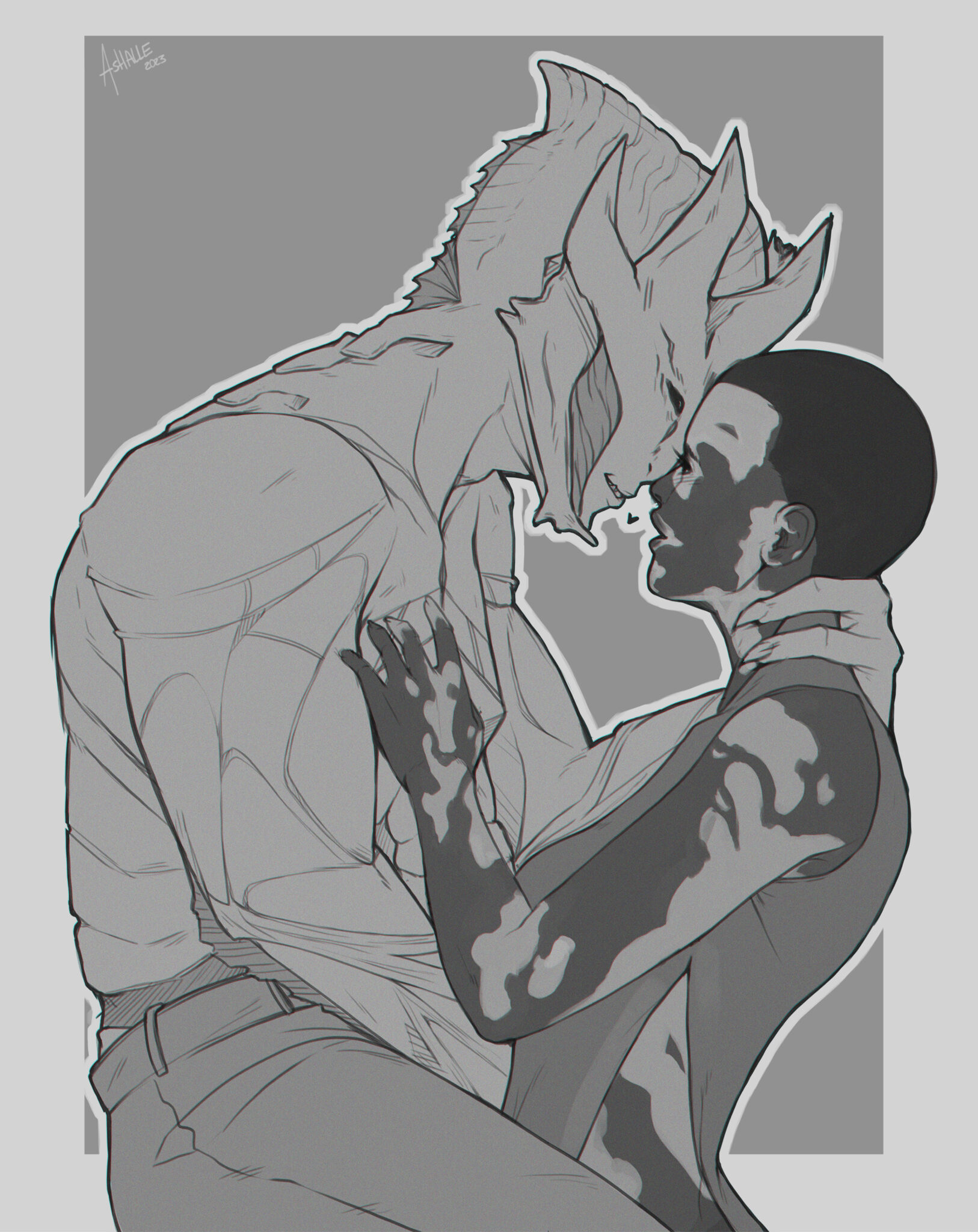
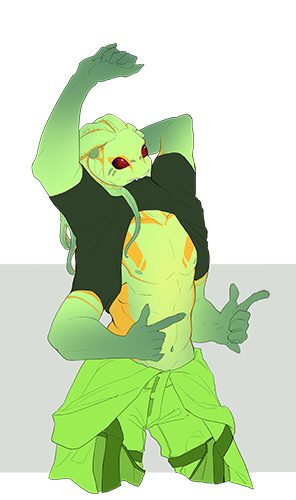
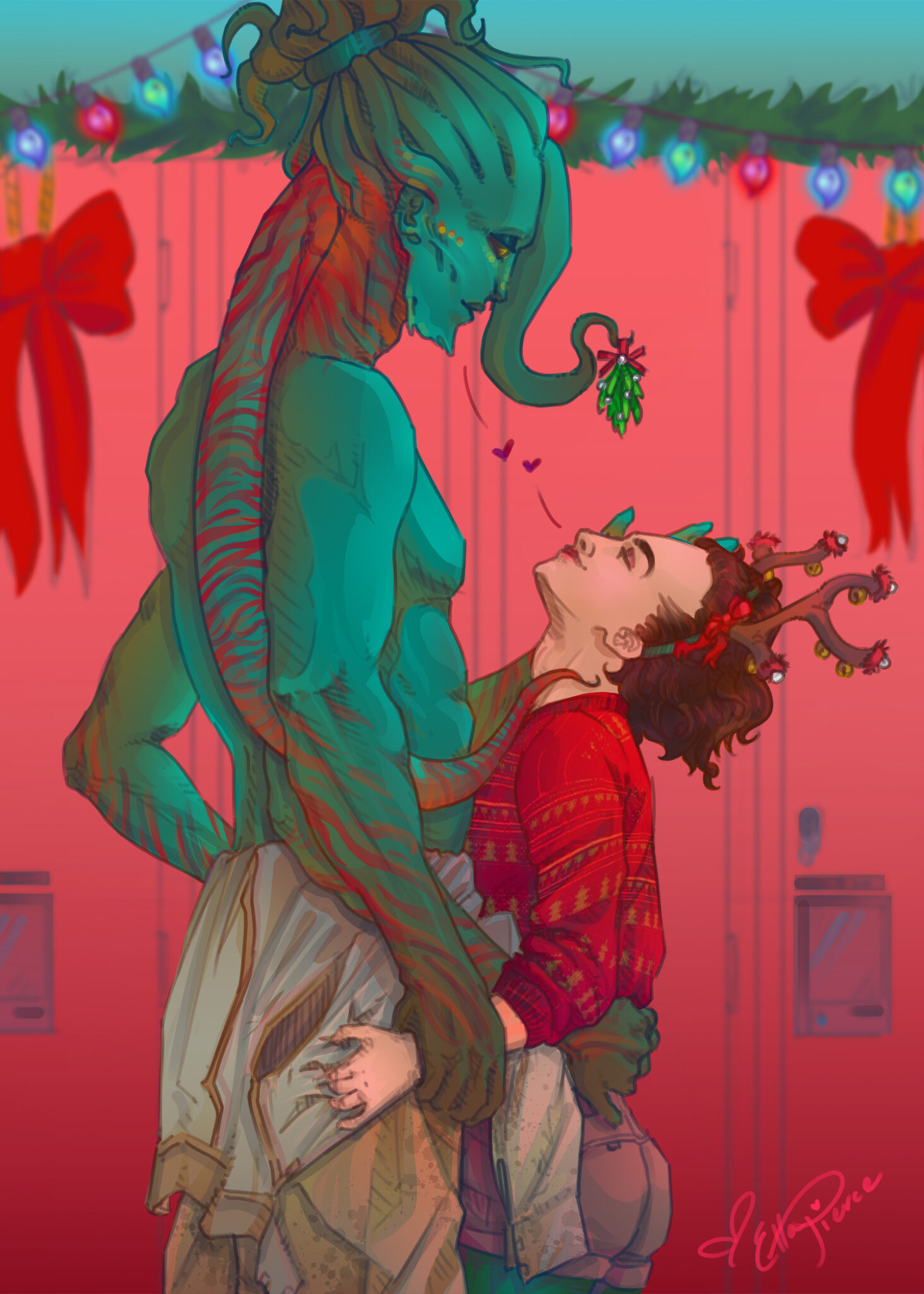
FM: What do you see as the primary conflicts in the different series?
EP: Each series has its own perspective on the human-alien experience. The ISU is about establishing human autonomy in a galaxy that desperately wants to exploit them. But the Over the Moon series is cozier and more about personal growth, especially the celebration of maintaining one’s traditions in a foreign place. Hence, human diversity is really important to that series.
I have two other series in this world that aren’t currently on Amazon as well. The Awakening Earth series (book 1 currently featured on Patreon) focuses on the personal relationships that develop during the tension of integrating Humanity with the rest of the ISU. And the Feral Games series (book 1 coming out as a newsletter novella in September via BookFunnel), which is a sports series about humans getting caught in the crossfire of extreme instinctual competition. So the focus is more on alien cultures than human cultures.
FM: Ooh, I can’t wait to learn more about both series! Which of your characters is your favorite? Is there someone you’re really excited to write a book for?
EP: OH NO. This is the hardest question. Because I write from an empathetic perspective, there’s not a single character I don’t fall in love with. Even the baddies. But, I have a very very soft spot for Aavar Medansh from Persistence and Traveler, the captain of the Mummer. I’m very excited to write his book.
FM: If you were a character in your books, who would you be, and what would you be doing?
EP: I’d probably just be me! That’s the boring answer, though, right? I’ve wondered what it would be like to have an integration partner though, so perhaps I’d be a character in my Awakening Earth series. Public speaking is one of my fortes, so I’d like to think I’d do a lecture tour around the galaxy, too. (Is my academic showing?)

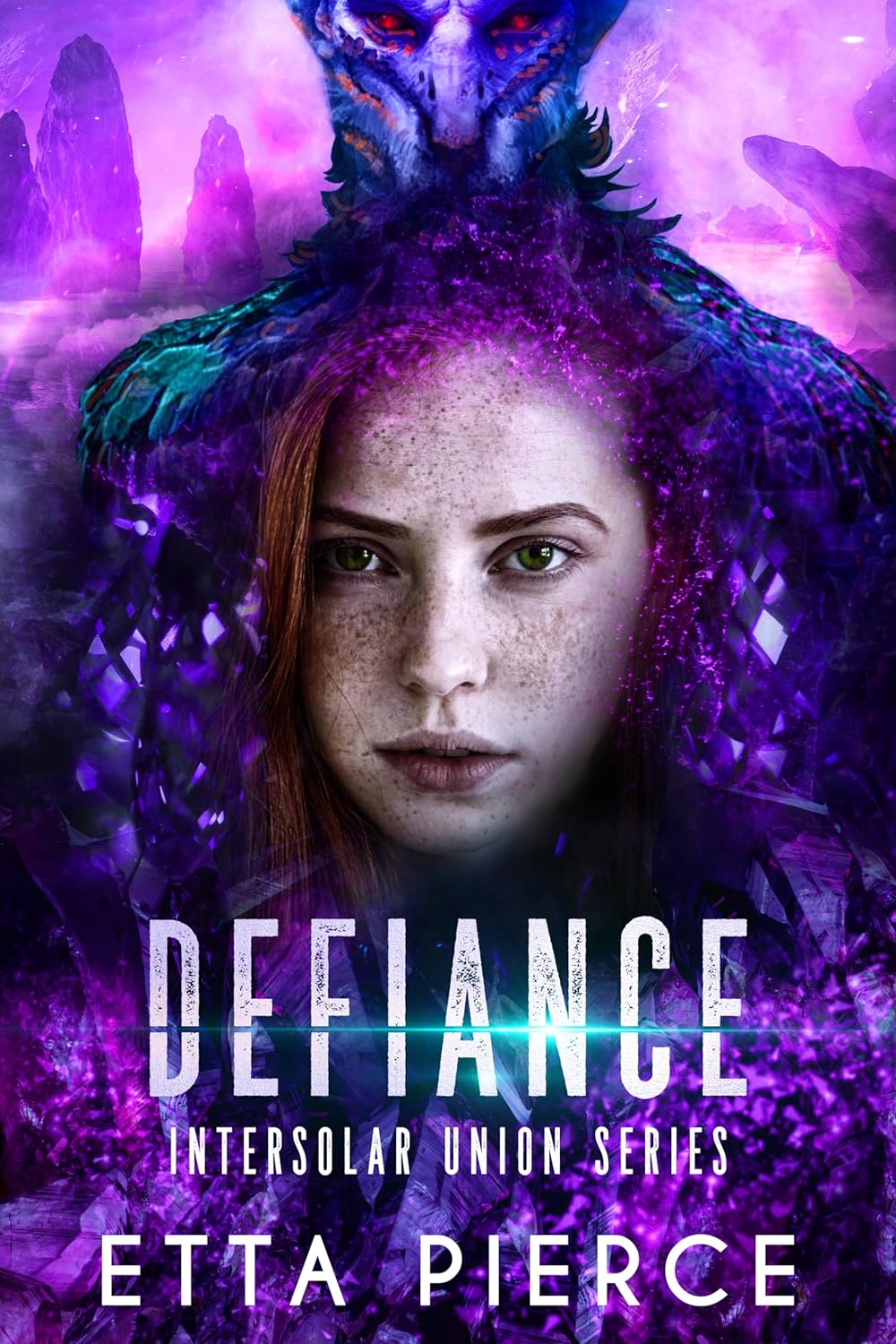
FM: You’d be a great lecturer! The sixth book in the Intersolar Union series is out next week and introduces a new species, the yiwren who shift between predator and prey types. You’ve been building up to this specific pairing for a very long time, so what are you most excited for readers to see in Alliance?
EP: I’m most excited for people to raise their eyebrows at the yiwren. Up until now, Fasach’s species has been described as docile and soft, but they’re not. Urban life and their refugee status has dramatically changed their circumstances. They’re a wild people that follow their instincts, and the difference will be very obvious. I hope that Fasach feels just as much out of place as the humans do.
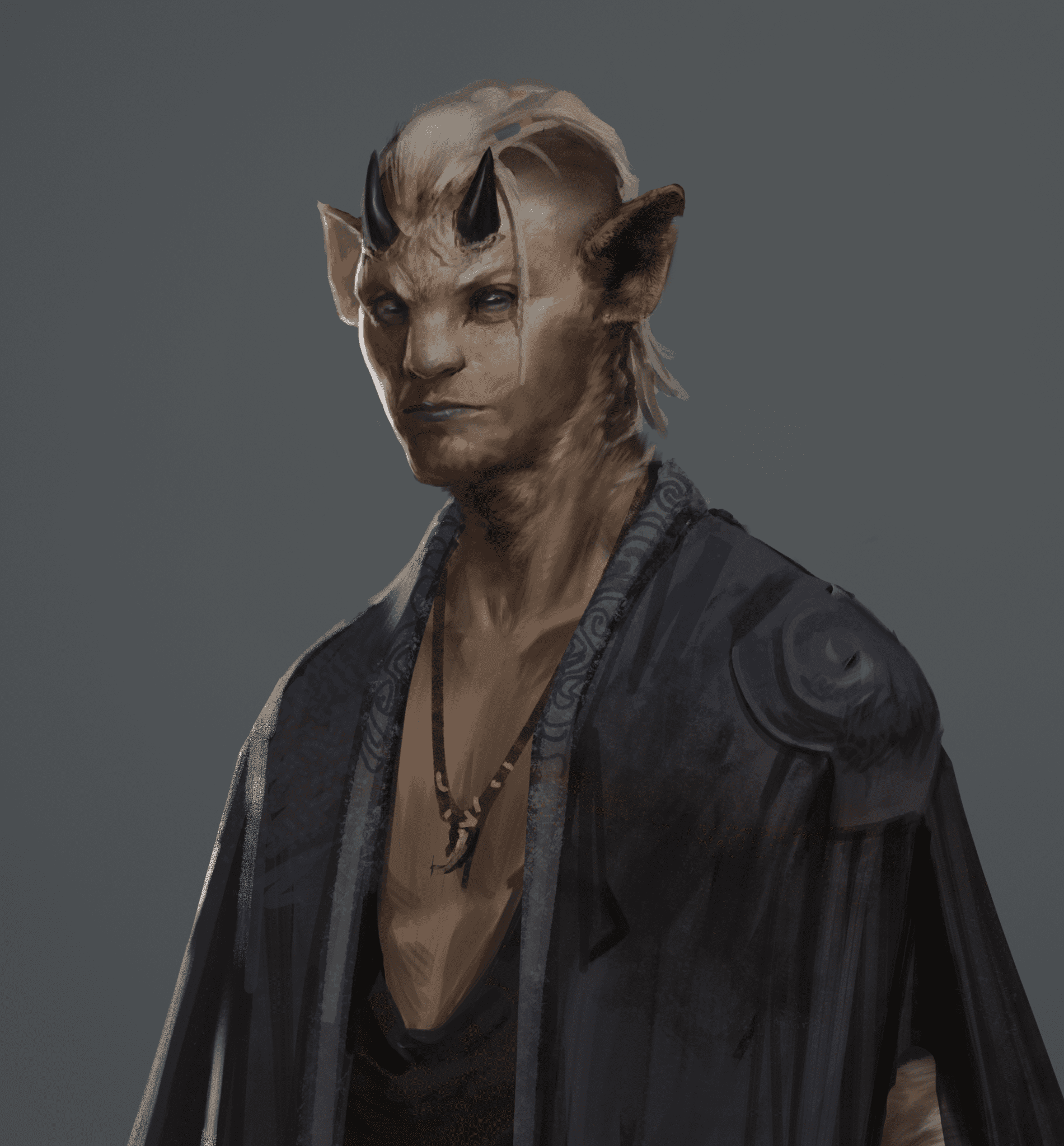
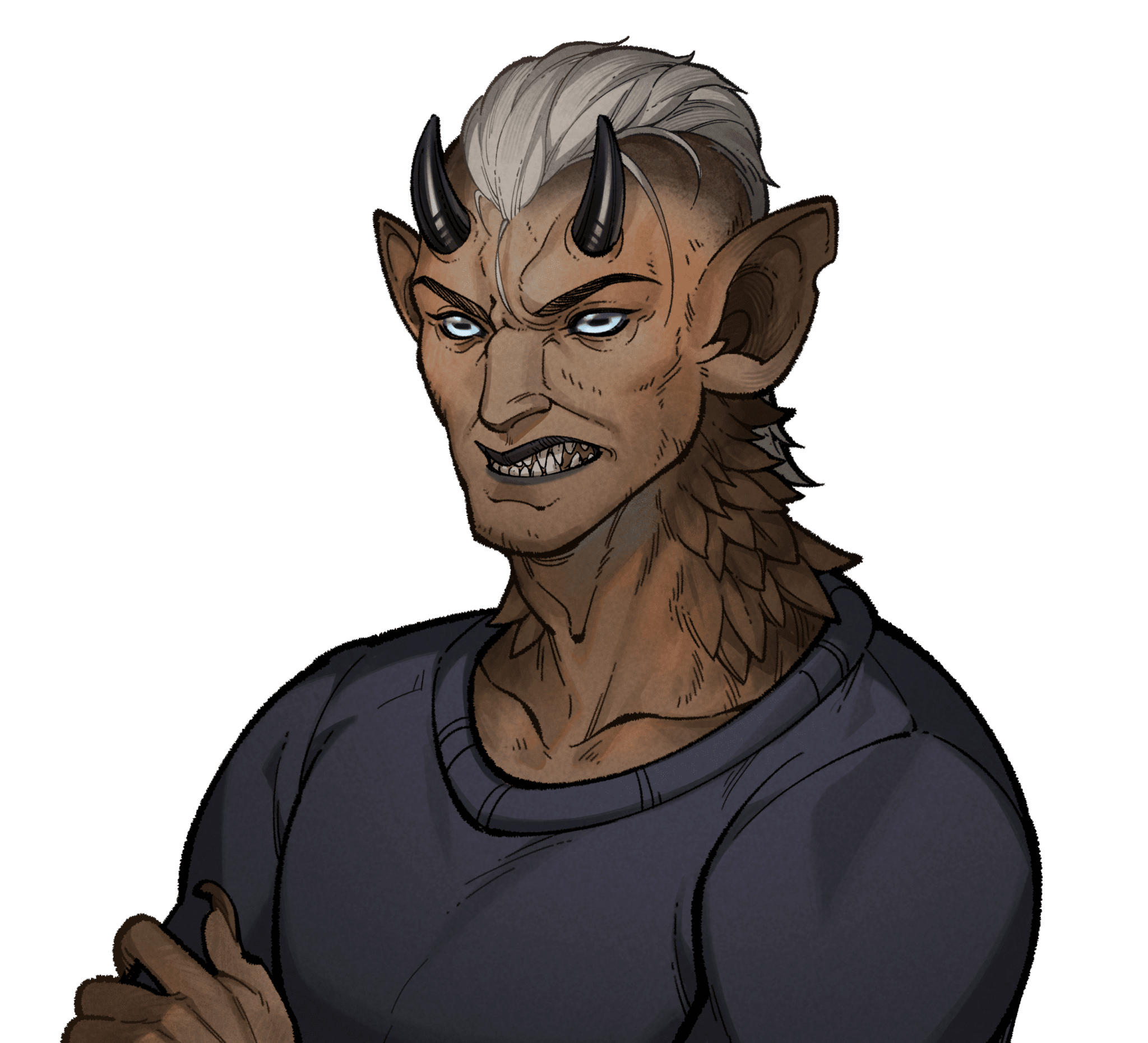
FM: I know you can’t tell us too much about book seven, Defiance without spoiling what’s happened in Alliance, but what can you tell us about the last third of the ISU?
EP: The entire world shifts, and safe spaces evaporate pretty quickly. I think it’s important to know that humans triumph in the end, but the road there is a knife’s edge, and many of their protectors face the chopping block.
FM: You mentioned the Awakening series. Can you tell us a little bit about it and when we might get to see it? (Patrons can already read the chapters as Pierce releases them.)
EP: Yes! I’ve had snippets of this series written for a while now. The Awakening Earth series happens forty years after the events of the ISU series, when humanity is finally integrated into the union. It’s a next generation sort of series, so you’ll see some vaguely familiar heroes that were children before. This series follows the style of the Over the Moon series, in which there are a lot of potential books, and since they’re all standalones, there’s no set number. Holidays will definitely be in the mix, and not every book is about integration partners working together. One that I’m very excited to write features a bubblegum pink shilpakaar and her childhood best friend. 😉
FM: When I was reading both series, I could tell you had done your research about the refugee experience and the realities of trying to set up what is essentially a long-term refugee camp and society in a new location. How did you go about researching for the ISU and Over the Moon?
EP: I first drew on personal experiences working as a field artist in the Atlantic Rainforest and the exotic isolation of being a white teenager studying alone in a variety of Asian countries. These experiences had a profound impact on my view of the world. Specifically in that I don’t write any of my characters “differently” than I would write a character like myself. We’re all human with genuine reactions to the world. None of us is a stereotype.
Once I’ve decided on the pairing and general traits of each character, the basic story premise, and have done some reading on the direction I want to take them, I begin the search for consultants. I prefer using consultants to sensitivity readers most of the time because I want the lived experiences of my characters to be intrinsic to the story. That means having questions and searching for answers before I start writing and following through while I’m writing. A lot of pantsing relies on stereotypes and our personal experience. It’s essentially author improv, and doesn’t create a lot of genuine room for diverse character development because every character is a facet of yourself.
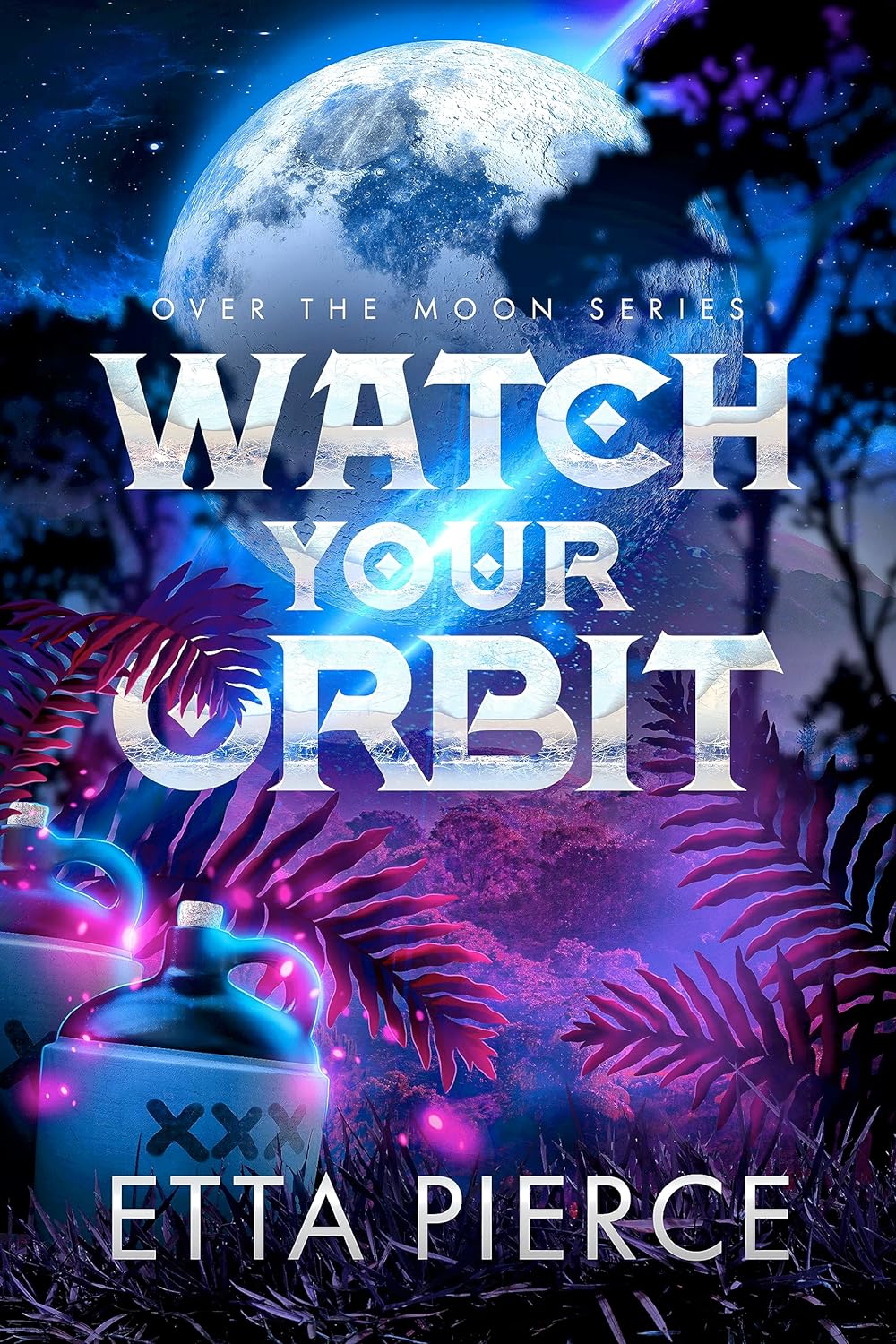
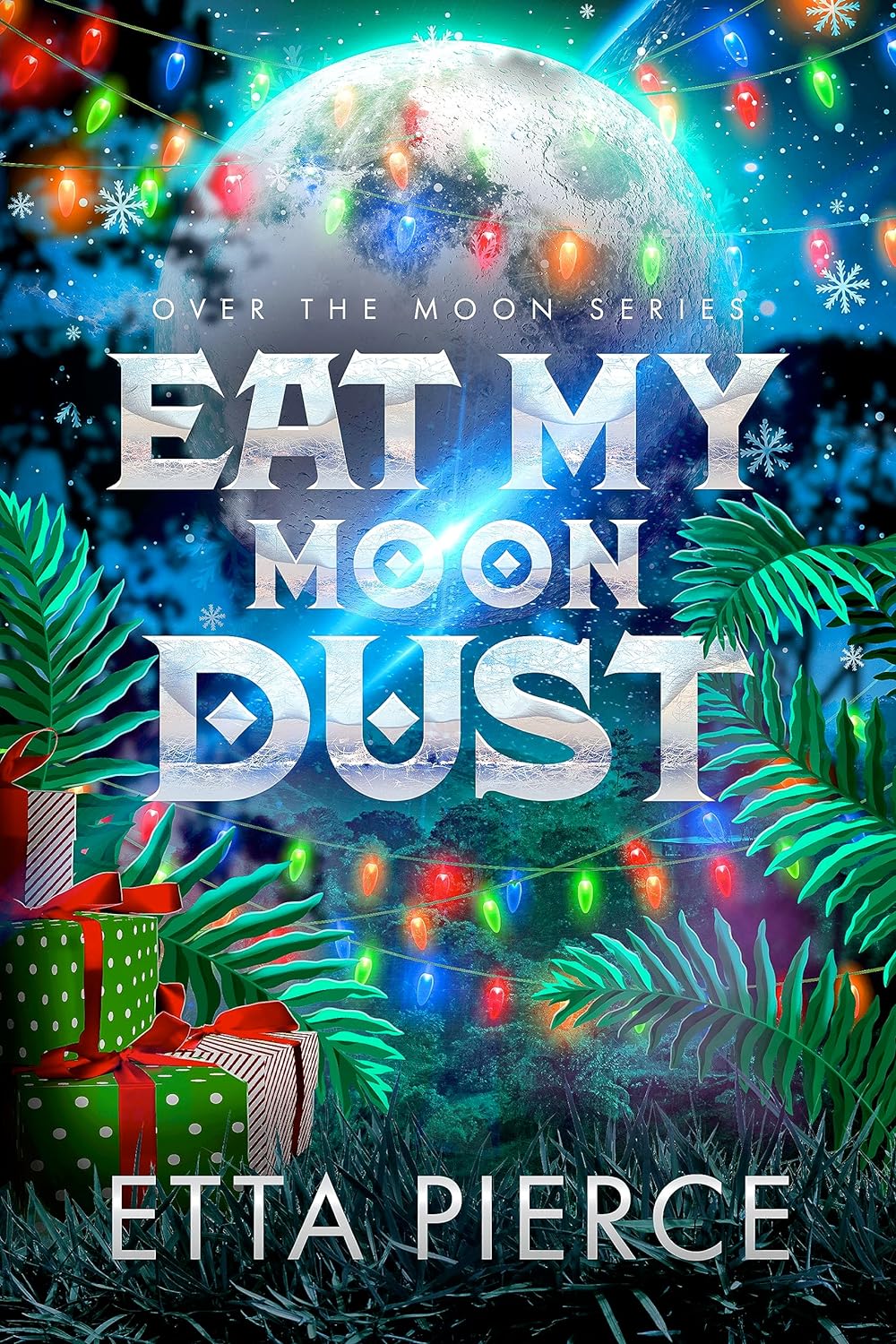
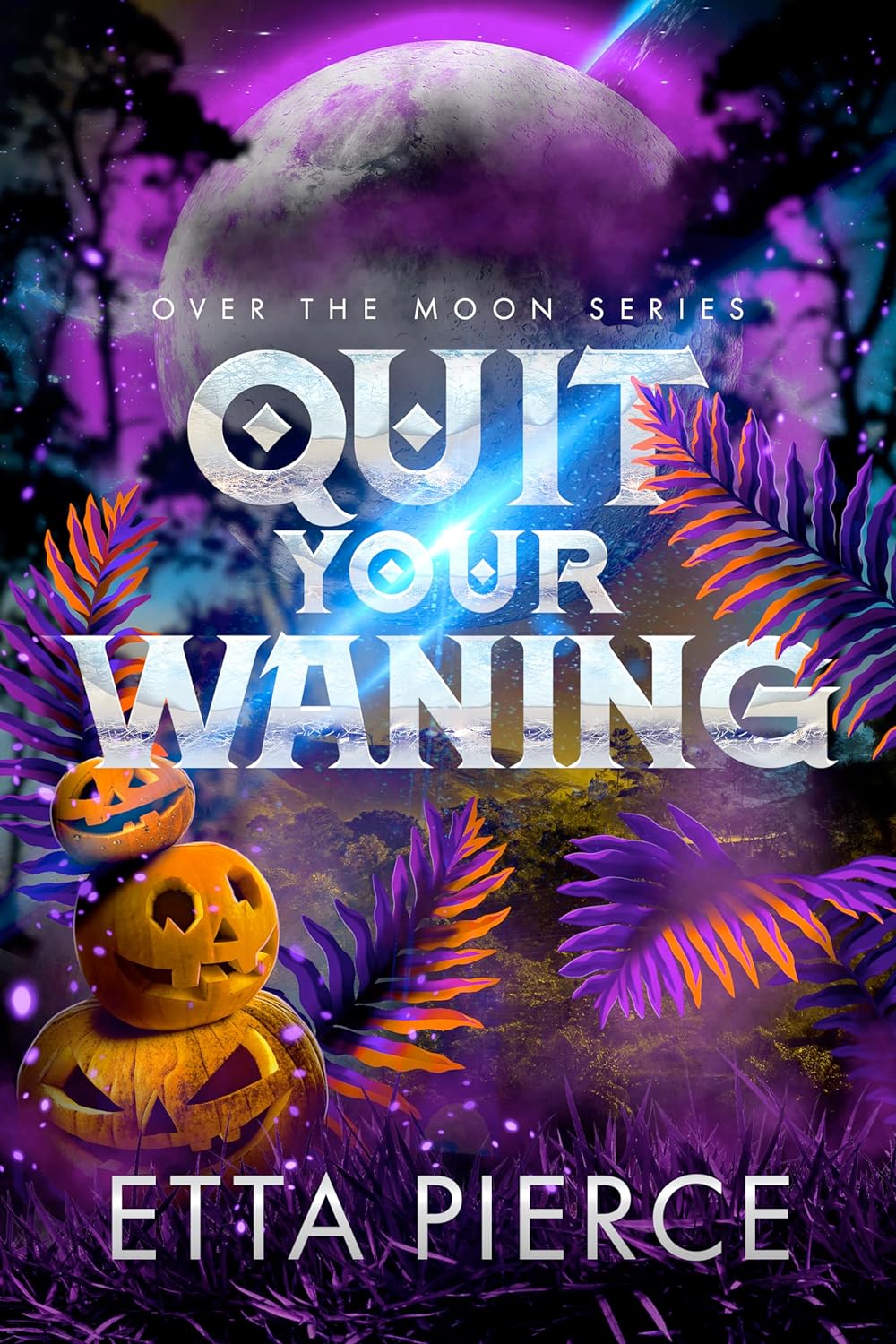
FM: Do you foresee yourself ever writing a completely new and unrelated series?
EP: Yes! I have a dark fantasy standalone and a fantasy series started. Not the writing, but the world logic (which is where I always start). I know quite a bit of the dark fantasy outline, though, and hope to release it in 2026. They may all be part of the same universe–I haven’t decided on that yet.
I am also having difficulty finding a vampire story that perfectly fits what I want to read, so I might be writing a cozy vampire story on my Patreon sometime next year.
FM: Pivoting for a moment, you’ve been in a few anthologies and even organized one yourself! Supra Velum was an incredibly successful sci-fi charity anthology for Queer Humboldt and the 2-Spirit Dry Lab. What made you decide to pull the anthology together? What was the process like?
EP: Thank you for asking about this! We raised almost twenty thousand dollars, which will fund Queer Humboldt’s 2-Spirit program for up to three years. Picking up a charity anthology can make a huge difference.
I decided to do an anthology because I have three careers, two children under five, and truly no time for volunteering in any consistent way, which was something I did often in college. After being in I Am the Fire, a charity anthology for womens’ reproductive rights, I felt a fire, alright–to benefit a doubly marginalized group that sees almost no funding at all.
The process was very smooth. I jumped off the organization of I Am the Fire, thanks to the generosity of its organizer Chloe Parker, and made it work for me. The most difficult aspect was quality control and compilation at the end. R.K. Munin, A.M. Kore, and Trish Heinrich were invaluable during that process. And of course, Chrisandra Corrections, who proofread the entire anthology.
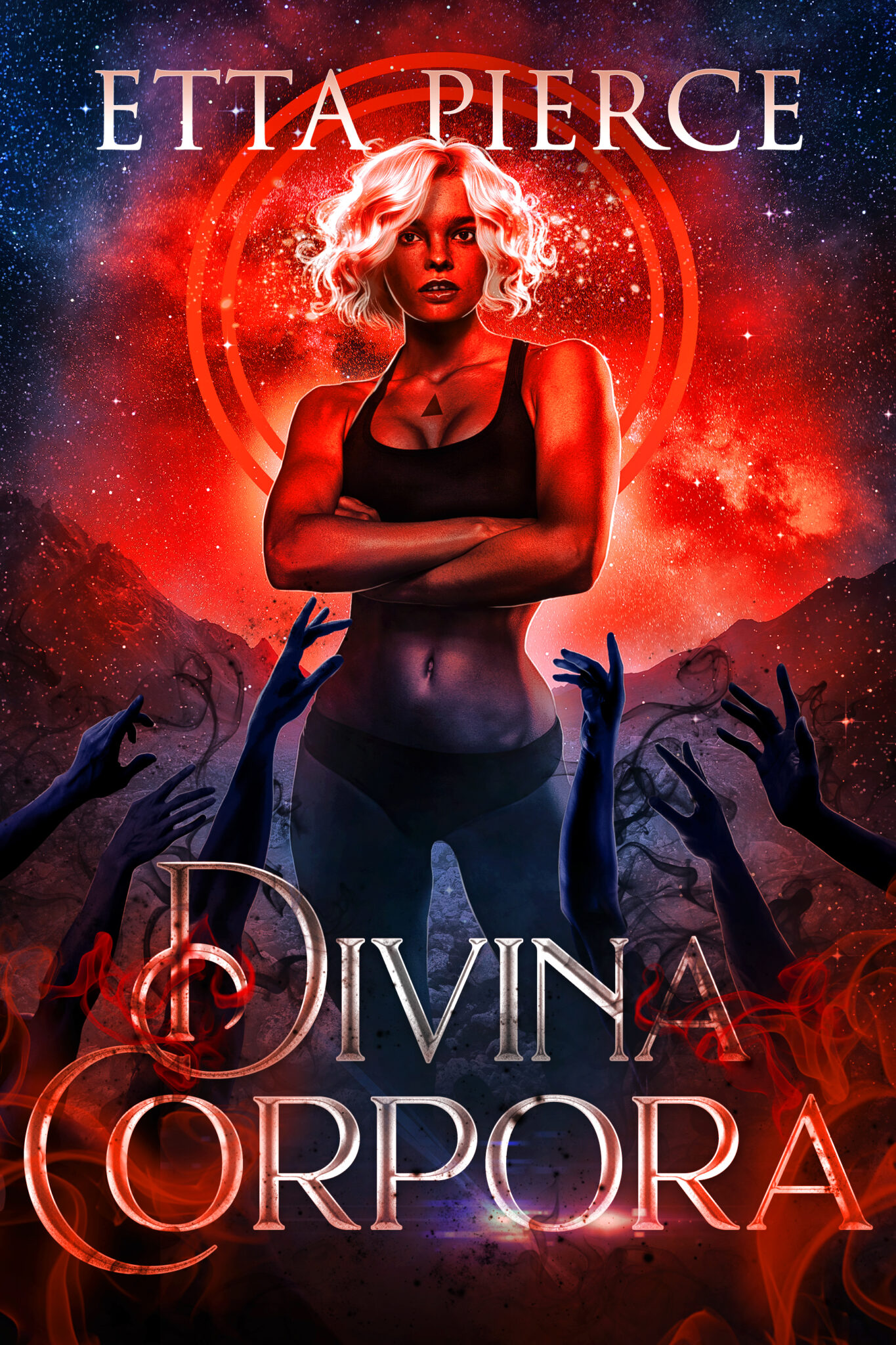
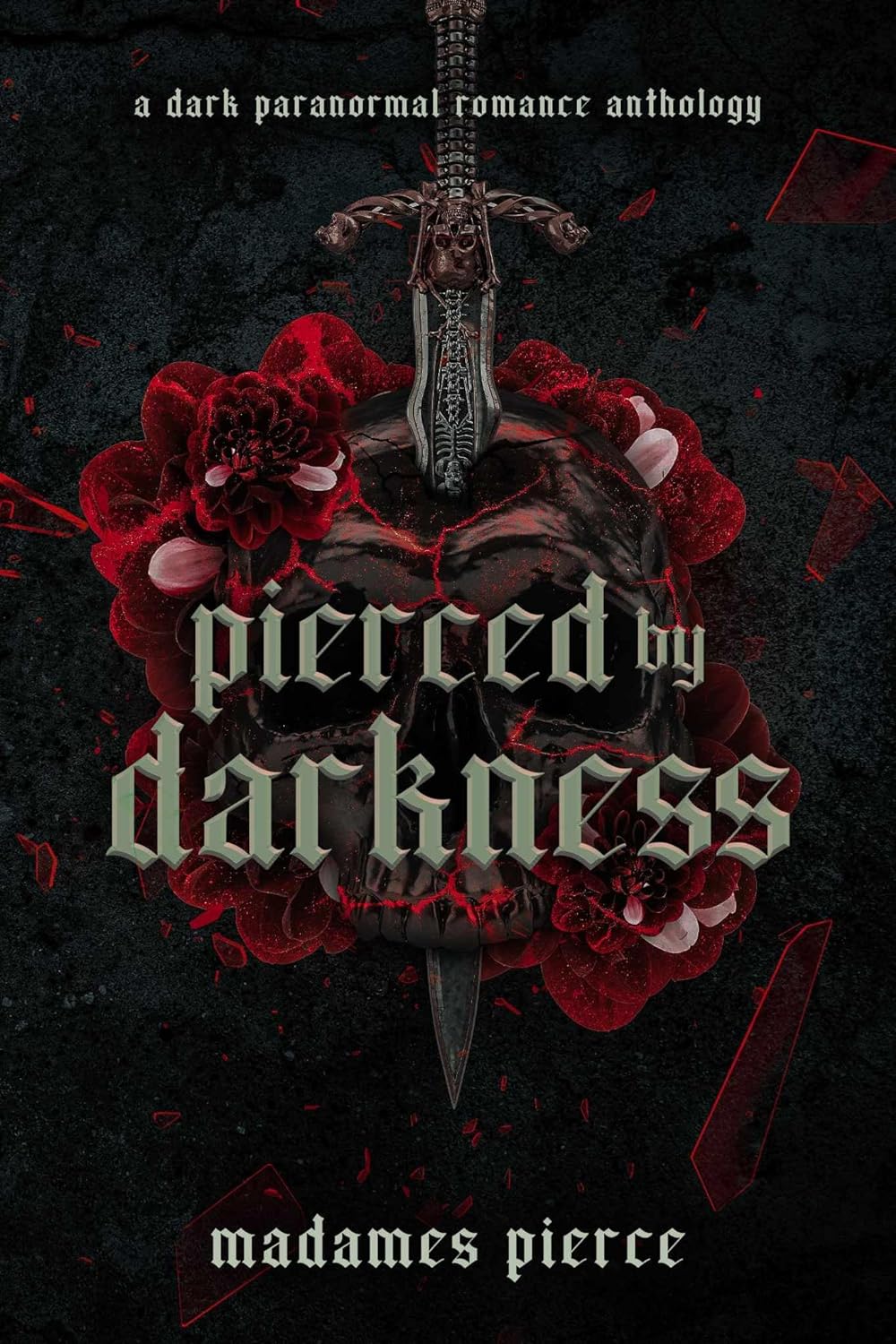
FM: You’re also going to be in Pierced by Darkness, a dark romance anthology where every author is a Pierce! What is your entry “Divina Corpora” about and is it set in the ISU?
EP: It’s a dark why choose scifi romance in a different universe featuring a human operative and three nebulous incubi. It has a sort of “what if Tarantino directed Blade Runner?” vibe. The trigger warnings mostly veer into gore and blood. In the exalted words of a participating author when she saw the list, “jfc, way to raise the bar.” Needless to say, I’m excited!
FM: Who or what are you reading (or watching/listening to) right now?
EP: I just finished Hot Blooded by Heather Guerre and LOVED it. I think I have a thing for men that trip on carpets before going absolutely feral.
Never Whistle at Night is also a fantastic anthology of Indigenous dark fiction. I’m slowly making my way through it so I can savor each story.
I’m also writing a nonfiction book unrelated to my Etta Pierce career, so a lot of my reading time has been devoted to that research. I can highly suggest Women in Pants by Catherine Smith and Cynthia Greig.
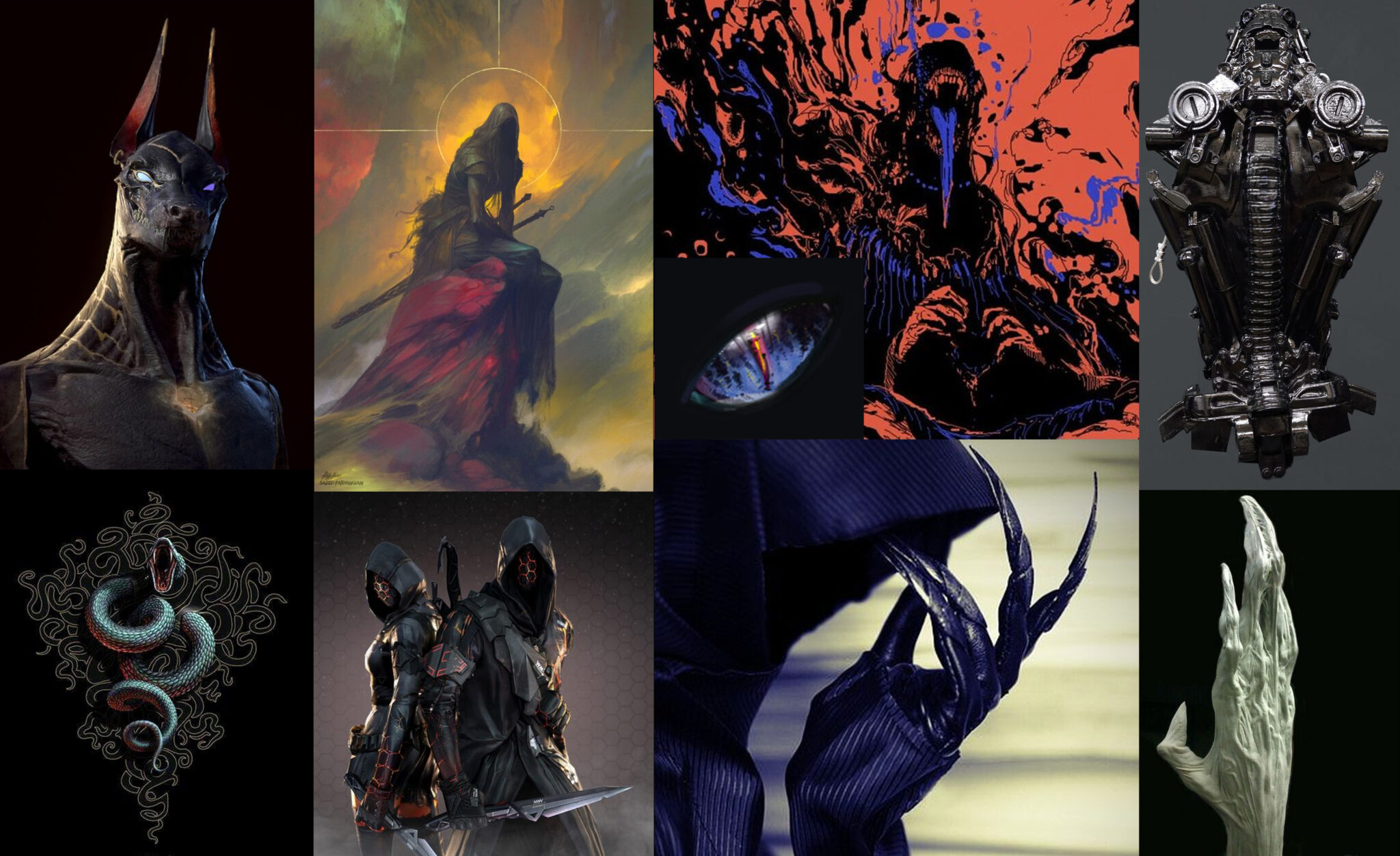
FM: Is there anything else you’d like to share with your readers?
EP: I was recently given advice from a seasoned (and very wonderful) author that made me so sad. The first two heroines in a series are often white with secondary characters that are not, so that the reader is fooled into caring about them. Now that I’ve told you, you’ll see it everywhere.
It’s not authors acting with malice, but a fact of reader bias. As soon as Resistance released–my only book at the time with a woman of color on the cover–my profits were cut by two-thirds. It was a staggering loss that goes beyond simple profit margins. For an author that relies on their royalties to live, it could have been a catastrophe.
Transparency on hard topics is important to me, so I want to make readers aware of this upsetting reality. Maybe the next time we decide to skip that next book, we can ask ourselves if the reason is just personal taste or a deeper prejudice. When we change our reading habits, we change the landscape of publishing.
FM: Racism whether from authors or readers has such a negative impact on authors and readers of color and it’s a continuous discussion! I really appreciate you talking about this.
What are your social media accounts?
If you’re Etta-Curious, you can find me primarily on Instagram and Patreon @ettapierce_romance 🙂
FM: Thank you so much for your time!
You can find Etta Pierce on her website as well and of course on Amazon! Alliance releases on July 4th.
Images courtesy of Etta Pierce and the respective artists
Have strong thoughts about this piece you need to share? Or maybe there’s something else on your mind you’re wanting to talk about with fellow Fandomentals? Head on over to our Community server to join in the conversation!

